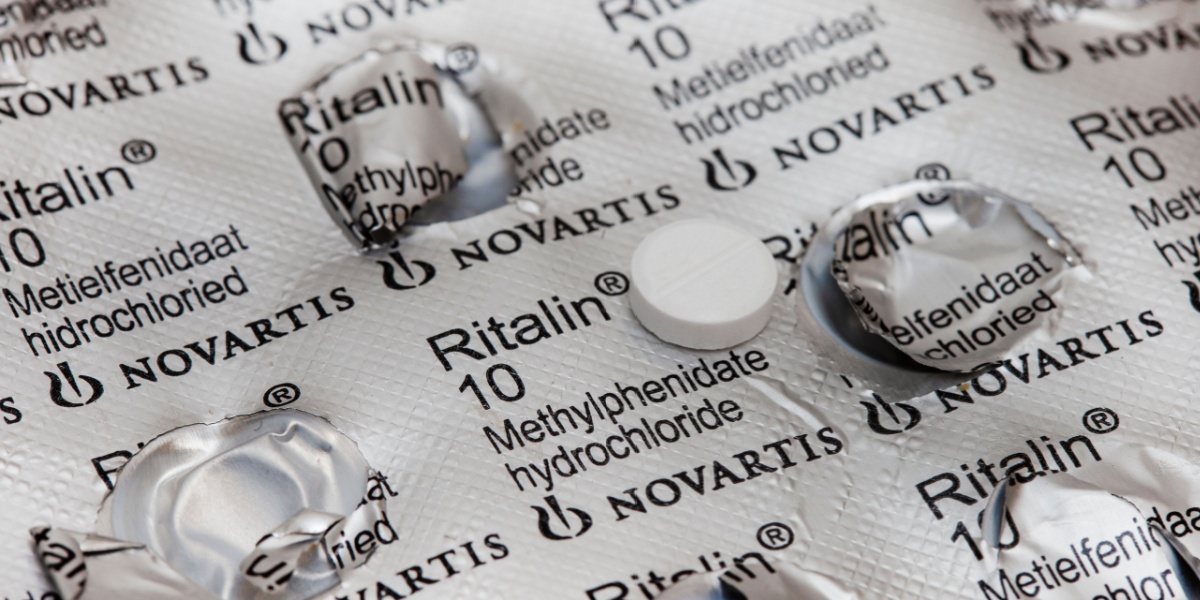Ritalin is a stimulant medication prescribed by healthcare professionals to treat symptoms of attention-deficit hyperactivity disorder (ADHD) in adults and children.
Compared with other methylphenidate preparations, Ritalin is relatively short-acting, being rapidly processed and eliminated from the body. Understanding Ritalin’s detection timeline is an essential part of making informed decisions about its use. This article explains how Ritalin works in the body and provides essential information about drug testing.
We do not advocate the misuse of substances. However, those who do should be able to access information that supports harm reduction. This information is not intended to replace professional medical advice. If you or a loved one is concerned about the impact of Ritalin misuse, seek support from your healthcare provider.
- Ritalin is a stimulant medication used to treat symptoms of attention-deficit hyperactivity disorder (ADHD).
- Ritalin can be detected on specialized drug screens in urine, blood, and saliva samples for an average of 2 days. Ritalin may be detectable in hair for up to 90 days.
- Several factors, including dose, organ function, body composition, and genetics, affect how quickly Ritalin is processed and eliminated from your body.

Understanding Ritalin half-life and formulations
Information about how long Ritalin (methylphenidate) remains in the body is conflicting and depends on various factors. Ritalin is a short-acting stimulant, with a half-life of 2 to 3 hours. It is for this reason that Ritalin is usually taken 2 to 3 times a day. [1]
In medicine, half-life refers to the length of time required for a drug's concentration to decrease to half its starting dose in the body. Half-life is impacted by the chemical composition of the drug and how efficiently the body is able to process it. [2]
Ritalin is the brand name of one of the available short-acting preparations of methylphenidate. Other forms of sustained-release and extended-release methylphenidate include Methylin ER and Concerta. Extended-release formulations may only need to be taken once a day, and it is also available in patch form. [3]
How long does Ritalin stay in your system?
The exact amount of time that Ritalin remains in the body is highly dependent on your body’s ability to process and clear it efficiently. For most people, the body excretes the majority of the drug within 24 to 48 hours. [4]
Duration of effects: How long does Ritalin last?
People who take Ritalin generally report symptom improvement for around 2 to 4 hours. This matches up with what we would expect to see given the drug’s half-life. [1] Sustained-release methylphenidate tends to work for around 3 to 8 hours. Extended-release formulations have the longest duration of effect, ranging from 8 to 12 hours. [1]
Detection times in drug testing
Understanding how long a drug remains detectable in the body is important for several reasons. It can help individuals make informed choices and avoid accidental interactions or legal issues. Knowing detection windows is especially relevant for those prescribed medications like Ritalin (methylphenidate) who may be subject to drug testing for employment, sports, or legal purposes.
Methylphenidate is not usually included in a standard drug panel (unlike illicit substances like methamphetamine). However, specialized drug panels that specifically test for Ritalin are available. [5] High-sensitivity testing can detect Ritalin in urine, blood, and saliva within minutes. For this reason, we have not included minimum detection times in this article. The table below shows estimated Ritalin detection times by drug test type.
| Drug sample type | Average Ritalin detection time |
|---|---|
| Urine | Up to 2 days |
| Blood | Up to 2 days |
| Saliva | Up to 2 days |
| Hair | Up to 90 days |
Urine tests
Urine tests are the most common form of standard drug tests worldwide. Ritalin is generally detectable in urine for up to 2 days. However, this may take longer for people who are unable to process it as efficiently. [4]
Blood tests
Ritalin and the breakdown products of Ritalin are usually detectable in blood for up to 2 days. This is highly dependent on the sensitivity of the blood test used. [1]
Saliva tests
Like urine and blood, the presence of Ritalin in saliva is also fairly consistent, being detectable for around 2 days after the last dose taken. [4]
Hair tests
Hair testing is rarely used outside of clinical studies. Like many other drugs, the length of time the evidence of Ritalin use remains in hair is linked to an individual’s hair growth rate. This means that it is generally detectable for up to 90 days. [6]
Factors influencing Ritalin's duration and detection
The Ritalin detection time values in this article are estimates based on the best available evidence. The actual length of time that methylphenidate can be detected varies from person to person, depending on several factors, including: [3][7]
- The amount (or dose) of Ritalin taken
- The presence of other drugs that impact the pathway used to metabolize Ritalin in the liver
- How well your liver and kidneys work (commonly impacted by chronic diseases like diabetes and hepatitis)
- Your age, weight (including body fat percentage), and height
- Your individual genetics and metabolic performance
Safe usage and consultation
Ritalin is a safe and effective medication used for the treatment of attention-deficit hyperactivity disorder (ADHD) when used correctly and under appropriate physician supervision. However, it has a significant addiction potential if misused. The following tips can help manage the risk of dependence:
- Only take Ritalin as prescribed by a healthcare professional at the correct dose and frequency.
- Avoid mixing Ritalin with alcohol or other stimulant drugs.
- Do not snort or inject Ritalin.
- If you have a history of substance abuse, speak to your doctor to check that Ritalin is right for you.
- Seek support from your healthcare provider if you become concerned about your Ritalin use.
To find out if Ritalin is right for you, seek support from your healthcare provider. Your doctor will conduct a comprehensive assessment of your symptoms, background, and medical history to determine the best treatment for you.



-Clearance-and-Detection--guide-detail.jpg?v=1744625688)
